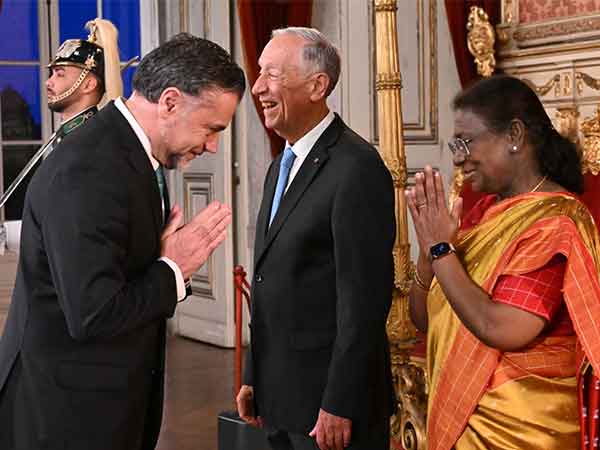Online campaign questions Beijing's rationale behind replacing English names by romanized Chinese
Jan 06, 2022

Hong Kong, January 6 : A campaign caused a stir online after Beijing started replacing English names with romanized Chinese in its subway ahead of the Winter Olympics.
Many Chinese social media users questioned the rationale behind such replacements since foreign visitors who don't speak any Chinese are unlikely to understand pinyin, reported CNN.
The Chinese capital noticed a subtle shift taking place in the city's subway - on signs, the English word "station" has been replaced with "Zhan," the pinyin, or romanized version, of the Chinese character.
And in some cases, English station names such as Olympic Park and Terminal 2 of the Beijing airport have become "Aolinpike Gongyuan" and "2 Hao Hangzhanlou", reported CNN.
Beijing Subway said in a statement last week that the changes are part of "the city's ongoing efforts to unify translations of subway station names in accordance with relevant regulations."
But that has failed to convince many on Chinese social media, reported CNN.
"English translations are meant for foreigners to read. Why don't you just have only Chinese then? This kind of translation is redundant," a comment said on Weibo, China's answer to Twitter.
Last week, the state-run Guangming Daily also weighed in, questioning the practicality of the move and how much such new translations would actually help the target audience.
"For Chinese people, the vast majority do not need the help of pinyin to read Chinese, and in fact more people may know Chinese characters than pinyin," it said in a commentary, adding that some elderly and overseas Chinese might not understand pinyin, which was developed in the 1950s and taught in primary schools in mainland China, reported CNN.
"For foreigners, the overwhelming majority probably don't recognize pinyin...Therefore, this kind of translation may fall into an awkward situation: Chinese people don't need it, foreigners don't understand it."
The changes appear to be a work in progress that first started last month, and come just weeks ahead of the Beijing Winter Olympics in February, reported CNN.
The move is accentuating fears that China's ruling Communist Party is increasingly pushing back against English, amid its ongoing ideological war against Western influence.
"They're starting to get rid of English. The English-learning craze at the time of the 2008 Beijing Olympics Games seems like a lifetime ago," a user lamented on Douban, a popular site for reviewing movies, books and music, reported CNN.
Widely regarded as China's "coming out party" on the world stage, the 2008 Olympics incentivized a generation of Beijing residents to learn English as they welcomed tens of thousands of foreign guests.
In the lead-up to the event, the Beijing government launched a campaign to correct wrong English translations on road signs and names of public venues.
But things took a different turn under Xi Jinping, who since coming to power in 2013 has eagerly promoted "cultural self-confidence" and traditional Chinese culture, reported CNN.
And in 2020, the Education Ministry announced a ban on foreign textbooks in all primary and junior high schools -- a move widely regarded as an attempt to tighten ideological control of students across the country.


















